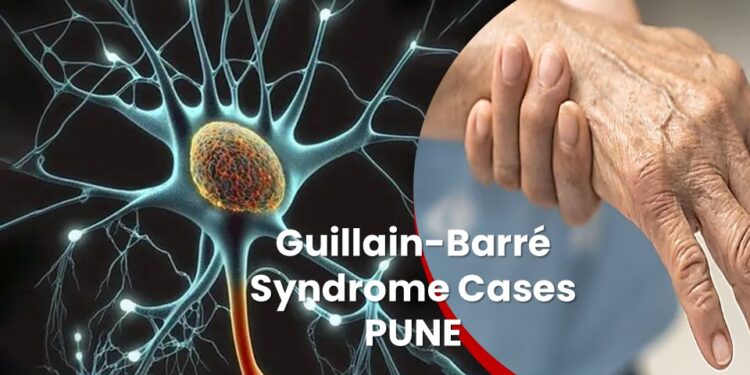Special Correspondent
Pune: Amid rising concerns over the growing number of Guillain-Barré Syndrome (GBS) cases near Sinhagad Road, the Pune Municipal Corporation (PMC) has initiated swift action to address potential water contamination. A recent survey conducted by the PMC focused on the public water well in Nanded village, one of the affected areas. Authorities suspect that improper sewage disposal may be contributing to the increase in GBS cases.
As a result, the PMC has issued directives to property owners in these recently merged villages, urging them to implement proper wastewater management systems such as septic tanks or soak pits. Notices were sent out to property owners on January 24, with follow-up actions being coordinated by both the Pune Metropolitan Region Development Authority (PMRDA) and PMC.
In recent weeks, several GBS patients have been reported from localities such as Nanded, Kirkitwadi, Nandoshi, and DSK Vishwa, prompting immediate action by the PMC’s drainage department. The department has submitted a comprehensive action plan to PMRDA to address the drainage and sewage concerns in these areas.
Inspection and Immediate Response
The inspection team focused on the public water wells in Nanded village, which supply water to several localities. With concerns raised about potential water contamination due to the proximity of drainage systems to the wells, the PMC took quick action to clean the surrounding drainage areas. Although no direct evidence of sewage entering the wells was found, specialized jetting and recycler machines were used to ensure the water supply remained safe for consumption.
In addition to the cleaning efforts, the PMC has prioritized repairs to critical sewer lines in nearby residential areas that were found to be in poor condition. This is part of a broader effort to improve the area’s sewage infrastructure.
Sewer System Improvement Project
In response to widespread sewage issues in the newly merged villages, the PMC has proposed a Rs 1,837 crore sewer system improvement project. The first phase of the project, costing Rs 581 crore, has already received preliminary approval under the AMRUT-2 scheme and is awaiting technical clearance to move forward.
The PMC has also identified several buildings and properties near the affected areas, including Gadve Corner and Mausashi Building, with inadequate wastewater management systems. Notices have been issued to these properties, requiring immediate cleaning and repair of their drainage systems to prevent contamination of the public water supply.
Measures to Mitigate Future Risks
To further reduce the risk of contamination, the PMC has replaced outdated drainage connections between nearby buildings and the main sewer line. New pipelines have been installed to ensure efficient sewage disposal and minimize the risk of cross-contamination.
Additionally, as a long-term preventative measure, the PMC is replacing approximately 110 meters of drainage lines near the Nanded well. This upgrade aims to prevent any potential sewage leakage into the local water supply. The new system will be better equipped to handle waste without posing an environmental threat.
Urgent Cleanup Efforts
In response to complaints about contaminated water, the PMC ordered an urgent cleanup of damaged drainage lines in the area. On January 24, the regional office issued instructions for the cleaning of these lines to ensure that the water supply remains uncontaminated and public health risks are minimized.
Through these rapid interventions and long-term improvements, the PMC is working to safeguard public health and prevent further contamination in light of the ongoing GBS cases.

















